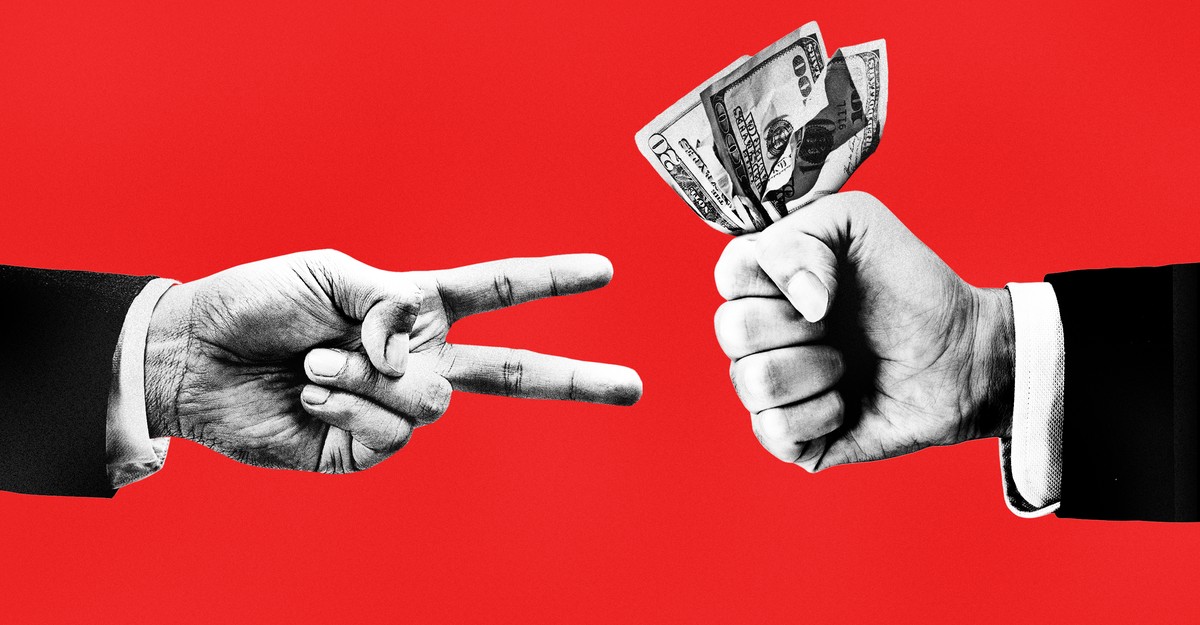The Grand Old Party cGOPc finds itself at a crossroads, grappling with a fiscal crisis that has been exacerbated by its staunch adherence to tax-cutting dogma. With no credible strategy to tackle the looming fiscal challenges facing the nation, the Republicans are facing mounting pressure to rethink their approach.
The Republican rhetoric around deficits and federal spending has been a mainstay of their messaging, particularly when Democrats are in power. Figures like Mike Johnson and John Thune have pointed out the spiraling debt and spending crisis that the nation faces, emphasizing the moral and constitutional duty of Congress to rein in expenditures. However, despite these calls for fiscal responsibility, the federal government has consistently run deficits for over five decades, pushing the debt-to-GDP ratio to historic highs.
In recent years, the tax cuts implemented under administrations like Donald Trump's have only exacerbated the fiscal woes. The Congressional Budget Office projects that extending Trump's 2017 tax cuts could add trillions to the national debt, further deepening the structural deficit the country is facing. This unsustainable trajectory underscores the pressing need for comprehensive action to address both spending and revenue generation.
The debate over fiscal policy has also highlighted the stark disparity in revenue collection between the United States and comparable nations. The US ranks low among OECD countries in terms of revenue collected as a share of GDP, with federal revenues falling well below peak levels seen in past decades. The persistent trend of tax cuts favoring high-income households has further widened this gap and contributed significantly to the current deficit.
The GOP's unwavering commitment to tax cuts as a core tenet of their ideology has come under increasing scrutiny. The alignment of various interests—from monied elites to conservative intellectuals—has reinforced the anti-tax orthodoxy within the party. However, this consensus is facing challenges from within the Republican base, which has grown more populist and less inclined to support tax policies that predominantly benefit the wealthy.
As the party grapples with its shifting demographic and ideological landscape, questions about the efficacy and fairness of tax cuts are being raised. Critics argue that further tax breaks for the affluent at a time of soaring deficits are unjustifiable, highlighting the need for a more equitable fiscal policy. The reluctance to consider revenue increases as part of the solution has left Republicans trapped in a fiscal quagmire that may require drastic measures to address.
Efforts to reign in the deficit will require a reevaluation of existing tax policies and greater enforcement mechanisms. Closing loopholes for the wealthy, enhancing IRS oversight, and revisiting estate tax deductions are some of the measures that could help shore up government revenues. However, these steps will likely face resistance within the current political climate, making meaningful reform a challenging prospect.
In the face of mounting economic challenges and global uncertainties, the GOP must reconcile its ideological stance on tax cuts with the practical necessities of fiscal responsibility. The growing recognition of the need for a more balanced approach to revenue generation underscores the urgency of a nuanced and pragmatic discussion on deficit reduction. As the nation grapples with its fiscal future, a fundamental shift in the Republican Party's approach to taxation may be essential to safeguard the country's financial stability in the long run.

